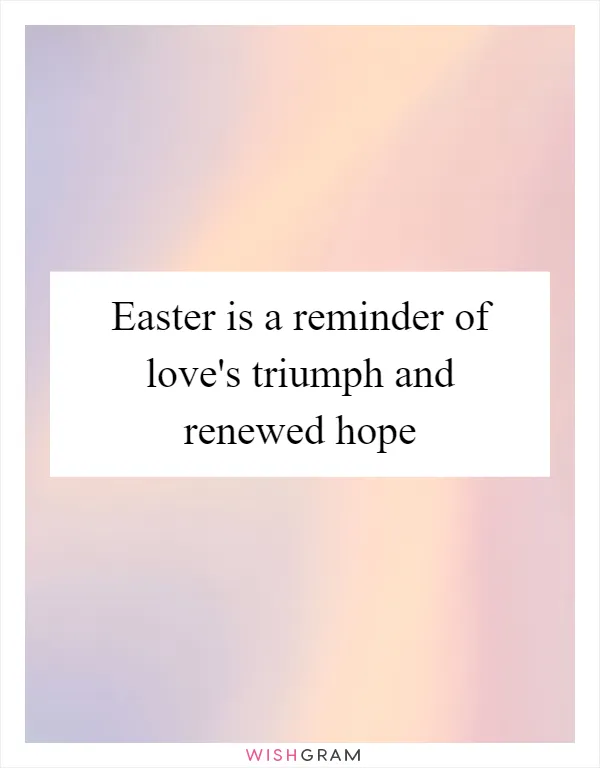Easter is a reminder of love's triumph and renewed hope
Easter is a time of year that holds great significance for millions of people around the world. It is a holiday that symbolizes love's triumph and renewed hope. This celebration is deeply rooted in religious and cultural traditions, and it serves as a reminder of the power of love and the possibility of new beginnings.
For Christians, Easter commemorates the resurrection of Jesus Christ, which is considered the ultimate triumph of love over death. It is a time to reflect on the sacrifice and love that Jesus demonstrated through his crucifixion and resurrection. This event is seen as a testament to the power of love to conquer even the darkest of circumstances, offering hope and redemption to all who believe.
Beyond its religious significance, Easter also represents a time of renewal and hope. As the holiday coincides with the arrival of spring in many parts of the world, it serves as a reminder of the cyclical nature of life. Just as nature awakens from its winter slumber, Easter reminds us that there is always the possibility of new beginnings and fresh starts. It is a time to let go of the past and embrace the future with optimism and hope.
Traditions associated with Easter further emphasize the themes of love and hope. The exchanging of Easter eggs, for example, symbolizes new life and fertility. The egg, often decorated in vibrant colors, represents the potential for growth and new beginnings. Similarly, the Easter bunny, a beloved symbol of the holiday, is associated with fertility and abundance. These traditions serve as joyful reminders of the love and hope that Easter brings.
Easter is also a time for families and communities to come together and celebrate. Many people gather for special meals, attend church services, or participate in Easter egg hunts. These shared experiences foster a sense of unity and reinforce the importance of love and hope in our lives. It is a time to cherish the company of loved ones and to express gratitude for the blessings we have.
